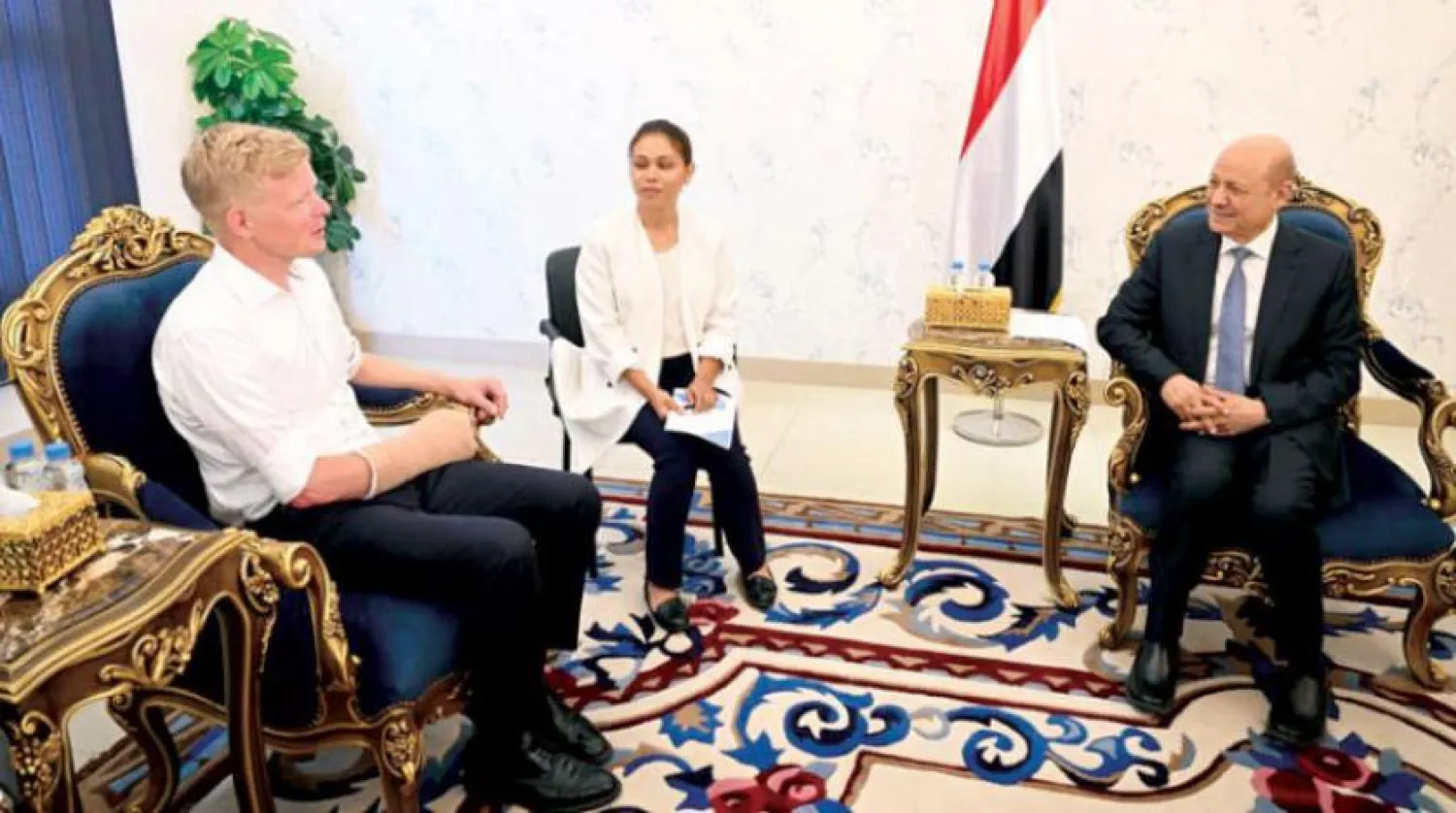The UN envoy to Yemen, Hans Grundberg, outlined the Yemeni agreement he sought to conclude after holding "frank, detailed, and constructive" discussions with the Houthis in Sanaa.
The UN envoy arrived in Sanaa Monday within the international efforts to support the Saudi and Omani mediation to achieve lasting peace in Yemen.
In a media briefing before leaving Sanaa, Grundberg said he had "positive engagements with the authorities in Sanaa" and had "frank, detailed, and constructive discussions on the way forward."
The envoy indicated that he was encouraged by what he heard and, indeed, by the constructive engagement by all sides at this critical time.
The envoy revealed the broad lines of the agreement he wants to achieve, saying that any deal must deliver tangible benefits for all Yemenis.
It should durably stop the violence through a cease-fire that ensures the safety of the Yemeni people, ensure more destinations and flights to and from Sana'a airport, guarantee the smooth and unhindered opening of the Hodeidah ports, and the resumption of the country's oil exports.
The envoy indicated that key roads in Taiz and other governorates must be opened, and public sector salaries must be paid regularly, transparently, and sustainably across the country.
It is crucial that any agreement also provides for the "preparation and the resumption of an inclusive, Yemeni-owned political process under the UN auspices," said Grundberg, adding that "only through such a process can Yemenis discuss, debate, and decide the terms of reaching a sustainable and just peace."
The envoy indicated that he was encouraged by the "positive and constructive atmosphere" during his meetings here in Sanaa.
"I look forward to returning in the near future to continue our engagement. I am heading to Aden today to engage with the Government of Yemen and hear their views on the way forward. I will also discuss the way forward with Saudi and Omani officials."
After a year of unprecedented calm in Yemen, the parties need to take the next bold steps toward ending the conflict, said Grundberg.
The UN envoy asserted that "cooperation at the regional level is also contributing to the current conducive environment."
"Opportunities like this are precious, yet at the same time, precarious. More than ever, now is the time for dialogue, compromise, and a demonstration of serious political will and leadership to achieve peace."
He asserted that the UN would accompany and support Yemenis every step of the way.
After his meetings in Sanaa, Grundberg headed to Aden to meet with the head of the Presidential Leadership Council, Rashad al-Alimi, who affirmed support for the UN endeavors, accusing the Houthis of not being "ready for peace."
Meanwhile, the official media reported that the President of the Presidential Leadership Council discussed with the UN envoy Yemeni developments and coordinated international efforts to revive the peace process.
Alimi returned Tuesday to Aden from Cairo after a "personal leave," according to state media.
Saba news agency reported that Grundberg briefed Alimi on the results of his recent meetings at the local and regional levels.
According to the agency, Alimi praised Saudi Arabia's efforts based on its 2021 peace initiatives and the importance of building on them to push the terrorist Houthi militia to deal seriously with regional and international endeavors.
The President welcomed the recent statement of the UN Security Council calling for engagement in good faith in peace efforts, stressing the need for any negotiation process based on the agreed terms of reference, particularly the relevant Security Council resolutions.
Alimi affirmed the Council's and the government's commitment to supporting the envoy's efforts and regional and international mediators, accusing Houthi militia of "not being ready for peace."
Houthi militia doesn't care about the exacerbating suffering that was clear in the painful stampede disaster in Sanaa that killed dozens of poor people looking for any humanitarian aid to survive, indicated Alimi, referring to the stampede that killed more than 200 people and wounded, just before Eid al-Fitr.
He called on the international community to pressure the Houthi militia to fulfill its obligations under the Stockholm Agreement, including visits to detention facilities and revealing the fate of thousands of abductees and disappeared persons.
Saba agency reported that Alimi warned the international community against overlooking Houthi's unilateral measures and gross human rights violations, encouraging them to mobilize more than a million children into sectarian camps.
Meanwhile, the UN envoy and US Special Envoy to Yemen, Tim Lenderking, began a new round of meetings supporting the efforts led by Saudi Arabia and Oman to bring peace to Yemen.
Lenderking arrived in Riyadh to discuss the recent developments and reviewed the Kingdom's efforts to back peace efforts, alleviate the humanitarian suffering of the Yemeni people, and support the Yemeni government and economy and the actions of the UN envoy.









